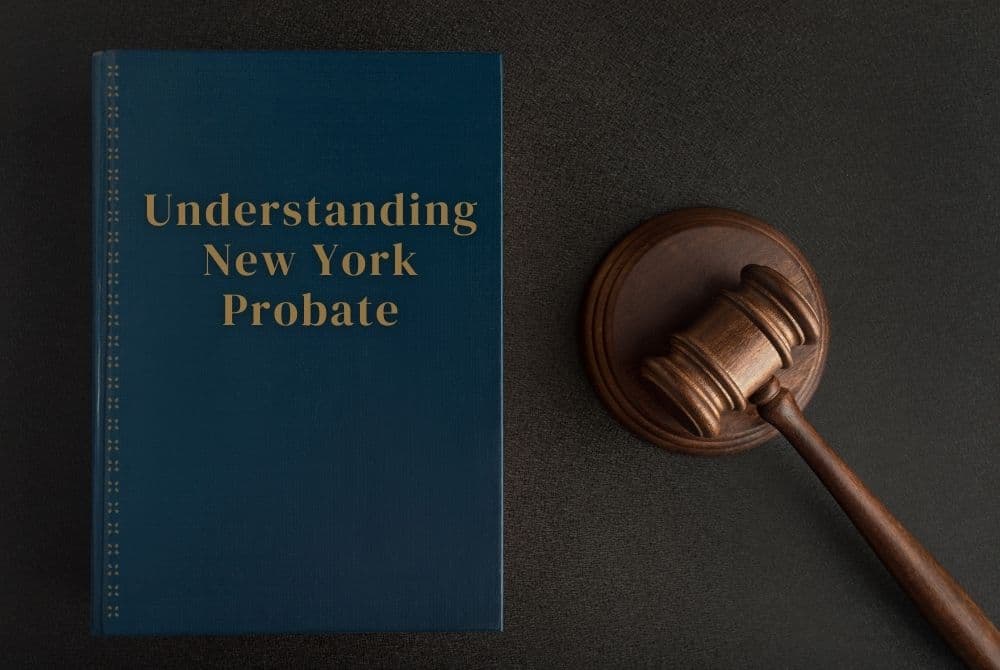
5 Ways to Avoid Probate in New York
By: Barry E. Haimo, Esq.
April 14, 2022
If you are taking the time to plan your estate, you probably have your beneficiaries’ best interests in mind. So the last thing you’d want is for your estate to get tied up in probate. New York probate court proceedings can be drawn out, costing your family time, money, and stress.
Fortunately, you have options in New York to avoid probate. Let’s take a look at five different ways to spare your estate the probate process.
Understanding NY Probate
If you have a will when you die in the state of New York, your estate will likely be handled by an executor and pass through probate. The probate of wills and the appointments of executors is handled by a surrogate’s court in each county of New York state.
If you do not have a will (intestacy) or a small estate (with assets totalling less than $50,000) your assets will also be subject to probate. Probate is often the first step in the estate administration process, and any beneficiaries or fiduciaries named in an estate will be notified.
The Headache of NY Probate
Unfortunately, this is usually where the process gets lengthy and cumbersome. Depending on the assets, and any contesting on behalf of the beneficiaries, probate administration can take months or even years.
If you want your assets to pass directly to your beneficiaries or joint owners on any accounts, you should consider discussing the following forms of ownership with your estate planning attorney to see if it’s in your best interest to add them in your estate plan. Then probate can be avoided entirely.
1. Joint Ownership
Any property owned jointly with someone else will avoid probate and pass entirely to the surviving owner upon your death. The ownership must include the “right of survivorship” designation.
Two forms of joint ownership qualify in New York:
- Tenancy by the Entirety
- Joint Tenancy
2. Living Trusts
A living trust can be created for any assets you own, including bank accounts, real estate, and vehicles. Once you create a trust document and name someone as a trustee after your death, you must transfer ownership of assets to your trust.
This denotes you as the trustee of the trust until the time of your death – at which point, the named successor trustee has immediate control and access of the assets without any probate proceedings.
3. Payable On-Death Designations
Perhaps you have savings accounts or certificates of deposit and want their balances to transfer to a beneficiary when you die without probate. In the state of New York, you can add a Payable On-Death Designation (POD) to these accounts. Then your beneficiary can inherit the money without court proceedings.
4. Transfer On-Death Registration
You are also able to register both brokerage accounts and stocks and bonds in a Transfer On-Death form (TOD) in the state of New York. Similarly to POD, your beneficiary will inherit these at the time of your death without being subject to NY probate.
However, real estate and vehicles cannot be transferred on-death in New York.
5. Life Insurance
Lastly, life insurance is a simple and effective way to ensure those designated assets avoid probate. Unless the beneficiaries are also deceased, they will receive your inheritance without probate administration so long as you name a beneficiary.
Protect your family, assets, and business – and gain the peace of mind – knowing that you’re prepared and in control. We can help your beneficiaries avoid the burdensome probate process entirely.
Haimo Law has a 4-step unique proven process to help you leave a legacy you can be proud of. The alternative can mean significant taxes, chaos, court, costs, conflict, and a host of unpleasant and destructive surprises. Call us to get started today at 631-889-2757.
Author:
Barry E. Haimo, Esq.
Haimo Law
Strategic Planning With Purpose®
Email: barry@haimolaw.com
YouTube: http://www.youtube.com/user/haimolawtv
YOU ARE NOT OUR CLIENT UNLESS WE EXECUTE A WRITTEN AGREEMENT TO THAT EFFECT. MOREOVER, THE INFORMATION CONTAINED HEREIN IS INTENDED FOR INFORMATIONAL PURPOSES ONLY. EACH SITUATION IS HIGHLY FACT SPECIFIC AND EXCEPTIONS OFTEN EXIST TO GENERAL RULES. DO NOT RELY ON THIS INFORMATION, AS A CONSULTATION TO UNDERSTAND THE FACTS AND THE CLIENT’S NEEDS AND GOALS IS NECESSARY. ULTIMATELY WE MUST BE RETAINED TO PROVIDE LEGAL ADVICE AND REPRESENTATION. THIS INFORMATION IS PROVIDED AS A COURTESY AND, ACCORDINGLY, DOES NOT CONSTITUTE LEGAL ADVICE.